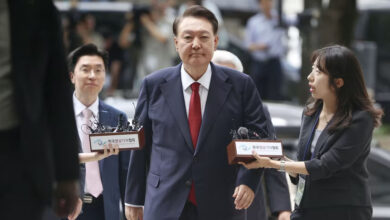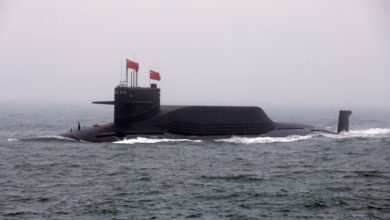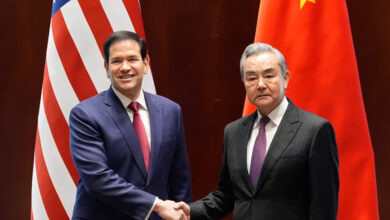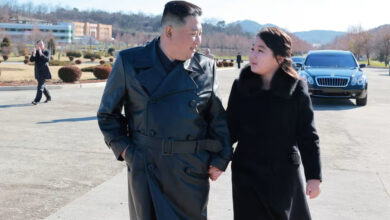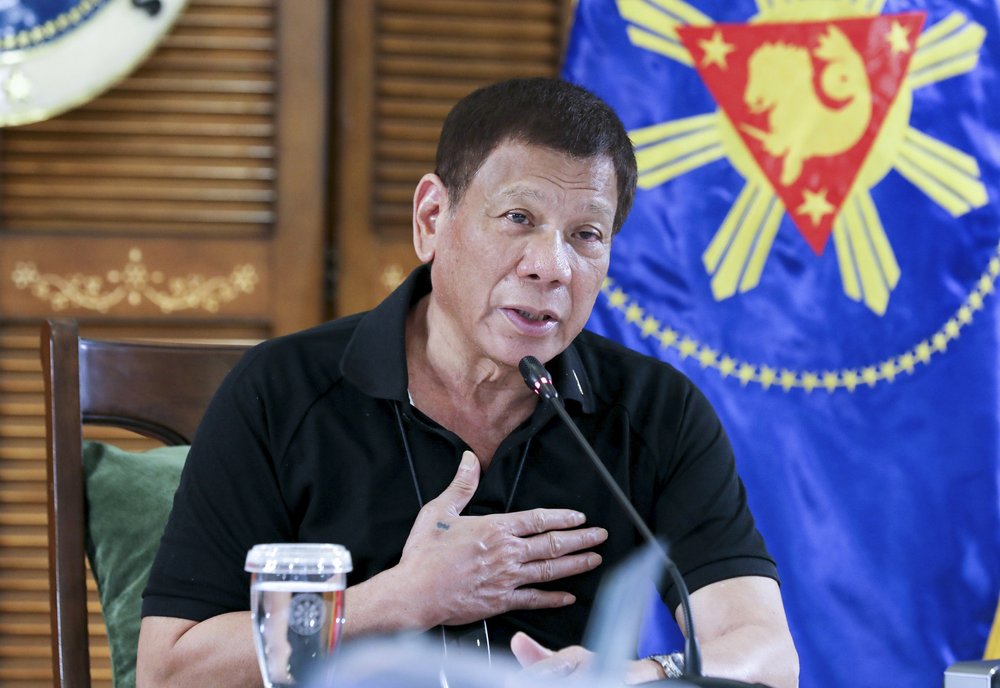
MANILA, Philippines (AP) — Philippine President Rodrigo Duterte has decided to ease a mild coronavirus lockdown in the capital and four outlying provinces to further reopen the country’s battered economy despite having the most reported infections in Southeast Asia.
Most businesses, including shopping malls and dine-in restaurants, and church services will be allowed to partially resume on Wednesday with masks and social distancing required.
Duterte reimposed a mild lockdown two weeks ago in metropolitan Manila and the nearby provinces of Bulacan, Cavite, Laguna and Rizal, a region of about 25 million people, after doctors’ groups warned that hospitals were being overwhelmed by COVID-19 patients.
The Philippines has reported more than 164,000 cases, including 2,681 deaths.
Duterte’s administration has been under intense pressure to revive the economy, which fell into recession in the second quarter as millions of people lost their jobs.
Duterte, 75, used his televised appearance to deny rumors that he had fallen ill and was flown out of the country over the weekend for treatment. “Stop this nonsense about me going to Singapore,” he said.
In other developments in the Asia-Pacific region:
— South Korea will ban large public gatherings and shut churches and nightspots in the greater capital area following a surge in coronavirus cases. Prime Minister Chung Sye-kyun said tighter social distancing restrictions for the Seoul metropolitan area — home to around half of the country’s 51 million people — was inevitable because a failure to slow transmissions there could result in a major nationwide outbreak. The measures in Seoul and nearby Gyeonggi province and the city of Incheon prohibit gatherings of more than 50 people indoors and 100 people outdoors. Nightclubs, karaoke rooms, buffet restaurants and computer gaming cafes will be shut, while churches must shift worship services online. South Korea reported 246 new cases of the coronavirus on Tuesday, raising its total for the last five days to 959.
— India has reported another 55,079 new coronavirus cases. The Health Ministry on Tuesday also reported 826 deaths in the past 24 hours, taking total fatalities to 51,797. India now has the fourth most fatalities behind the United States, Brazil and Mexico. Nevertheless, its deaths per million people stand at 34, far lower than what has been reported in some North American and European countries. India has been recording at least 50,000 new infections per day since mid-July. It has now reported 2.7 million infections.
— Australia’s coronavirus hot spot, Victoria state, reported its lowest number of new infections in a month. It reported 222 new cases Tuesday, its lowest since July 18. It also reported 17 deaths following a record 25 fatalities Monday. Infections have been trending down after a second lockdown was imposed in the state capital, Melbourne, in early August. An epidemiologist said 99 percent of the second wave of infections can be traced to returned travelers quarantined in two Melbourne hotels. Charles Alpren was testifying at a state government-appointed inquiry into failures in a quarantine system that required Australians returning from overseas to isolate in Melbourne hotels for two weeks.
— A maintenance worker at a New Zealand hotel where returning travelers are isolated has tested positive for the coronavirus, the second instance of community transmission in the country since last week. But health authorities say the man’s close contacts have so far tested negative, giving them hope the outbreak might be contained. Meanwhile, a cluster of virus cases discovered last week in Auckland that sent the nation’s largest city into a two-week lockdown has grown to 69 after authorities reported 13 new cases Tuesday. New Zealand now has 90 active cases, including returning travelers who are in quarantine. Before last week, it had gone 102 days without any community transmission.
— New Zealand’s leader has hit back at President Donald Trump’s claim that New Zealand is experiencing a big surge in coronavirus cases. Prime Minister Jacinda Ardern on Tuesday said Trump’s comments were “patently wrong.” “I think anyone who’s following COVID and its transmission globally will quite easily see that New Zealand’s nine cases in a day does not compare to the United States’ tens of thousands,” Ardern said. Trump on Monday said some countries held up as models for their virus response were now saying “whoops.” “You see what’s going on in New Zealand,” Trump said. “They beat it, they beat it. It was like front page, they beat it. Because they wanted to show me something. The problem is, big surge in New Zealand. So, you know, it’s terrible, we don’t want that.” The U.S., with a population of about 330 million, has reported more than 170,000 virus deaths. New Zealand, with a population of five million, has reported 22 deaths.
— The head of a major state-owned Chinese pharmaceutical company says its coronavirus vaccine will be commercially available by the end of the year. Liu Jingzhen, chairman of SinoPharm, told a Chinese Communist Party newspaper that the vaccine would cost less than 1,000 yuan ($140) and be given in two shots, 28 days apart. He said students and workers in major cities would need to get the vaccine, but not those living in sparsely populated rural areas. SinoPharm, which has two vaccines in trials, has an annual manufacturing capacity of 220 million doses, he said. Liu told the Guangming Daily that he had been injected with the vaccine. Reports that Chinese researchers and executives have received shots of their vaccines have raised ethical questions in some scientific circles.
— Japanese Emperor Naruhito, his wife Empress Masako and their daughter Aiko have canceled their annual trip to a summer resort, citing social distancing challenges amid the pandemic. Every year, the imperial family has taken a week or two off and gone to Nasu, an area with forested mountains and hot springs about 190 kilometers (110 miles) north of Tokyo. Last year, the family was seen relaxing and walking their pet dog. The getaway was canceled this year because a large crowd usually gathers to catch a glimpse of them, and travel involves a large staff and security, the Imperial Household Agency said Tuesday.
Image: In this photo provided by the Malacanang Presidential Photographers Division, Philippine President Rodrigo Duterte attends a meeting with members of the Inter-Agency Task Force on the Emerging Infectious Diseases in Davao province, southern Philippines late Monday Aug. 17, 2020. Duterte has decided to ease a mild lockdown in the capital and four outlying provinces to further reopen the country’s battered economy in a high-risk gamble despite having the highest number of coronavirus infections in Southeast Asia.(Robinson Ninal Jr./Malacanang Presidential Photographers Division via AP)

